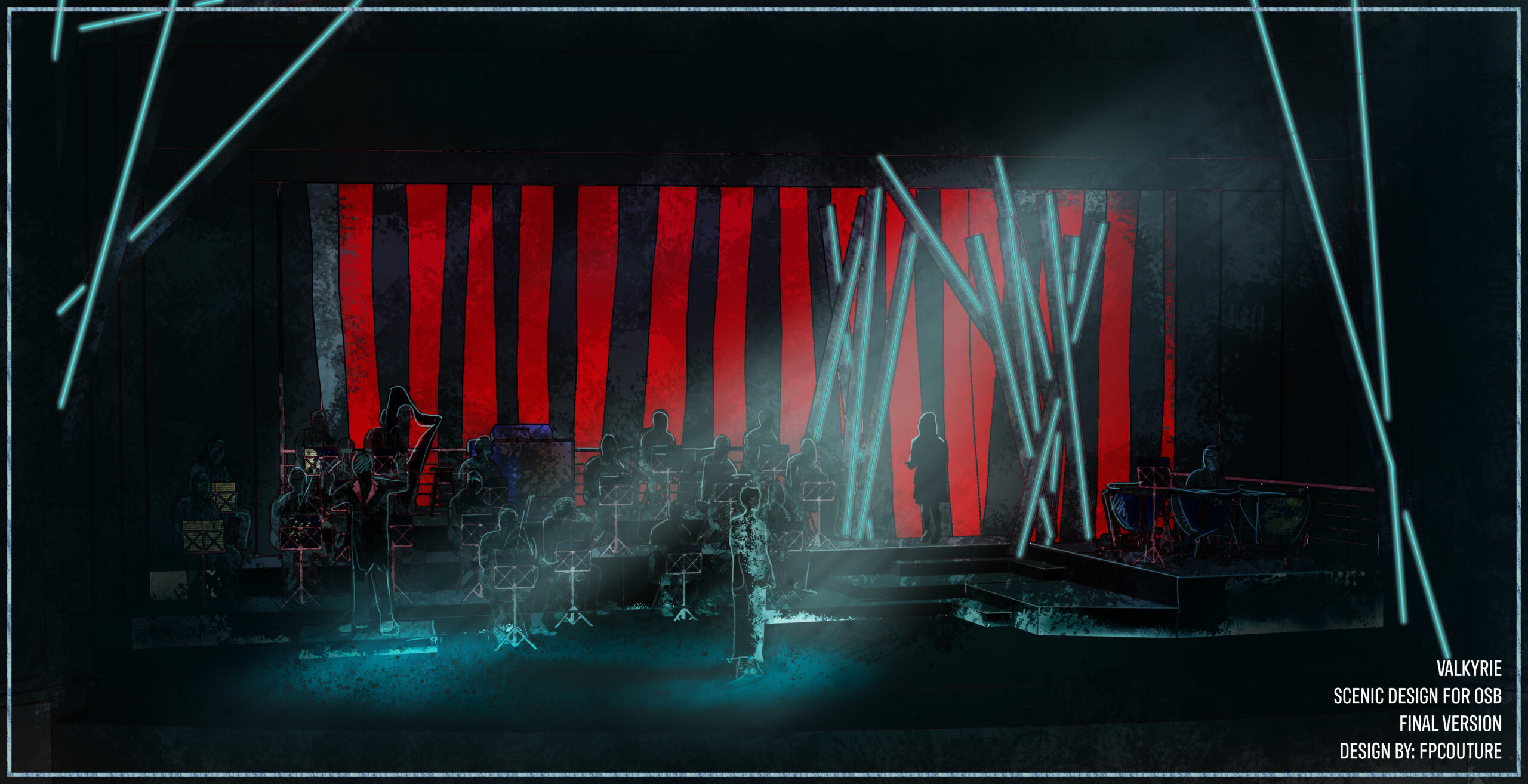This week we begin rehearsals for Richard Wagner’s The Valkyrie. Small opera companies like ours don’t often get a chance to perform Wagner. When produced on full scale, his operas place oversize demands on companies, performers, and audiences. As with our Das Rheingold in 2021, we are are able to do The Valkyrie thanks to the British composer/stage director duo of Jonathan Dove and (the late) Graham Vick, who in 1990 created abridged versions of the four operas of Das Ring der Nibelung (“The Nibelung’s Ring”) with a reduced orchestration, precisely so that smaller companies like ours can get in on the fun.
The Nibelung’s Ring is a four-part epic fantasy based on Norse mythology. With a story that pitches gods against humans and each other in a story of greed, love, revenge, and world domination, it was the 19th century equivalent of Star Wars, The Lord of the Rings, and Game of Thrones.
Wagner and his Ring have been adored, abhorred, celebrated, indicted, imitated, parodied, and fiercely debated since the four-evening mega-spectacle premiered in Bayreuth in 1876. The paradox of Wagner’s Ring is that while it is perhaps the most emblematic example of “opera” in the popular mind–think Bugs Bunny and Apocalypse Now–a century and a half of obsessive analysis, and the daunting length and production requirements of the operas have made the Ring seem as unapproachable as Valhalla itself.
As we jump into this adventure, our sole ambition is to put on an unforgettable afternoon of music theater, where amazing music and incredible performances entertain and move you whether or not you know anything about Wagner. Yet, since the name “Wagner” comes with baggage no matter what, I’d like to take a moment to clear up a few things, so we can leave the baggage behind and enjoy the show.
Things to know about our production of The Valkyrie, depending on your previous exposure to Wagner:
If you are a Wagner lover/expert:
This is not a full four hour long production of Die Walküre. It’s abbreviated so it lasts about two hours and thirty minutes including intermission. All the big tunes, like “Winterstürme”, “Du bist der Lenz”, and “The Ride of the Valkyries” are included, and the dramatic pacing is considerably accelerated.
The orchestra is composed of twenty instruments, and will be on the stage. There are only three Valkyries ( in addition to Brünhilde.) The performance will be sung in German with English surtitles.
The set is minimal, incorporating platforms at various levels, and use of LED lighting in conjunction with the ash tree and the fire that Loge builds to surround the sleeping Brünhilde. The costumes are inspired by Norse mythology. There is no “concept”, superimposed interpretation, or underlying “message”. Just the plot, the music and great singing.
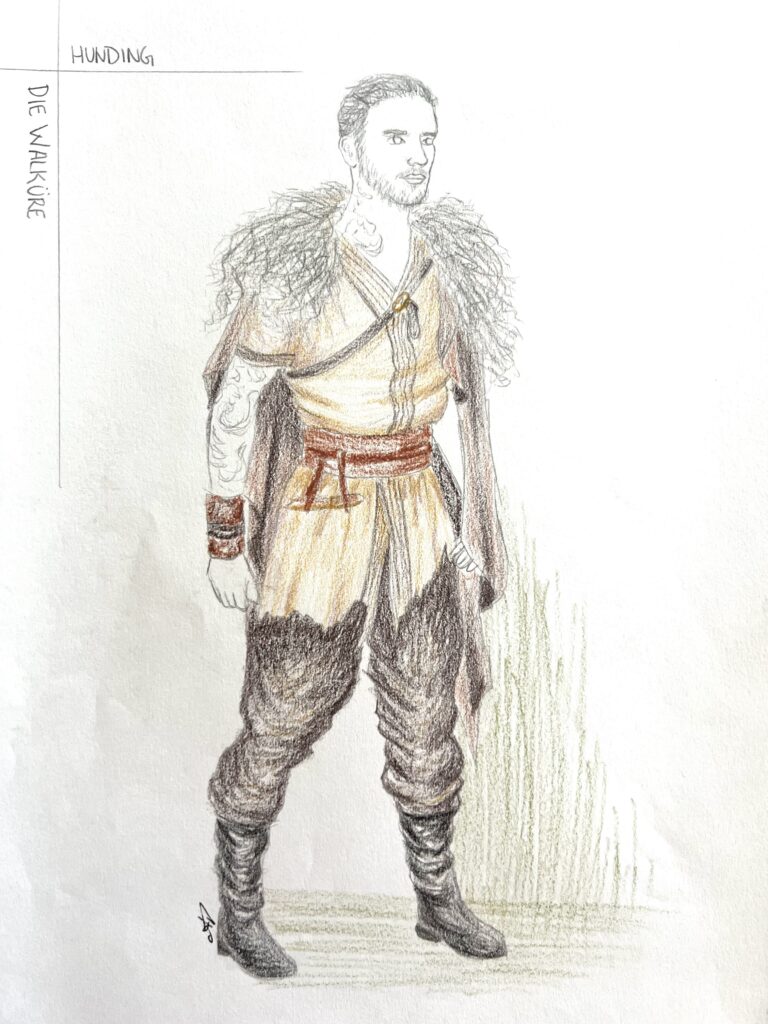
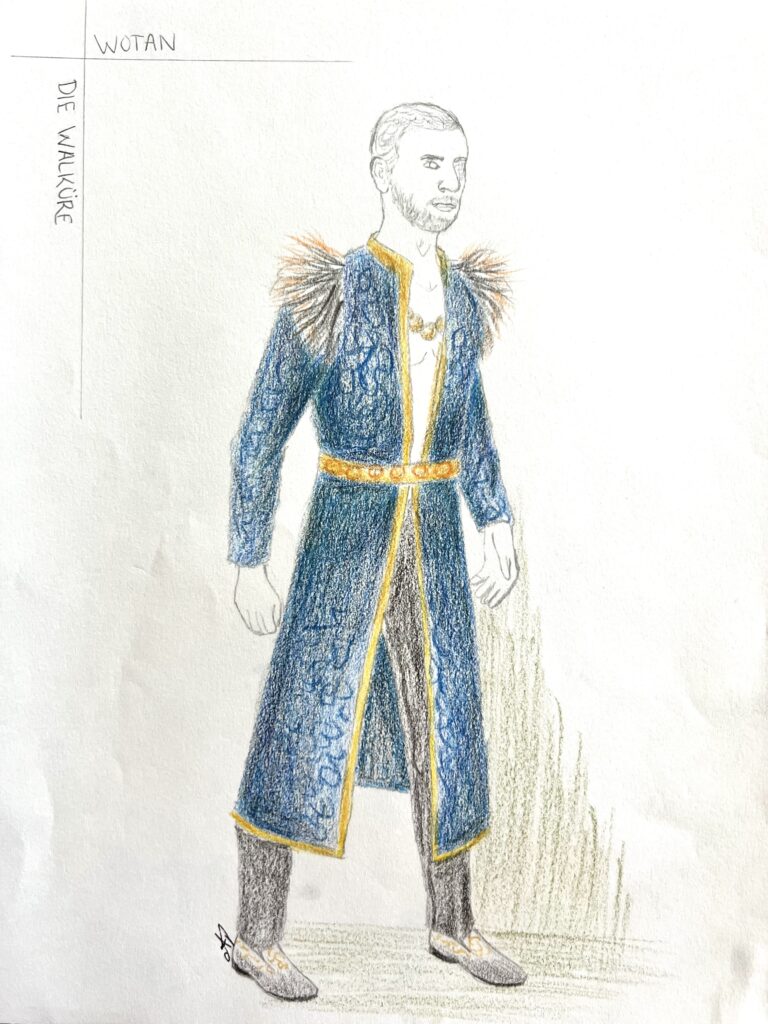
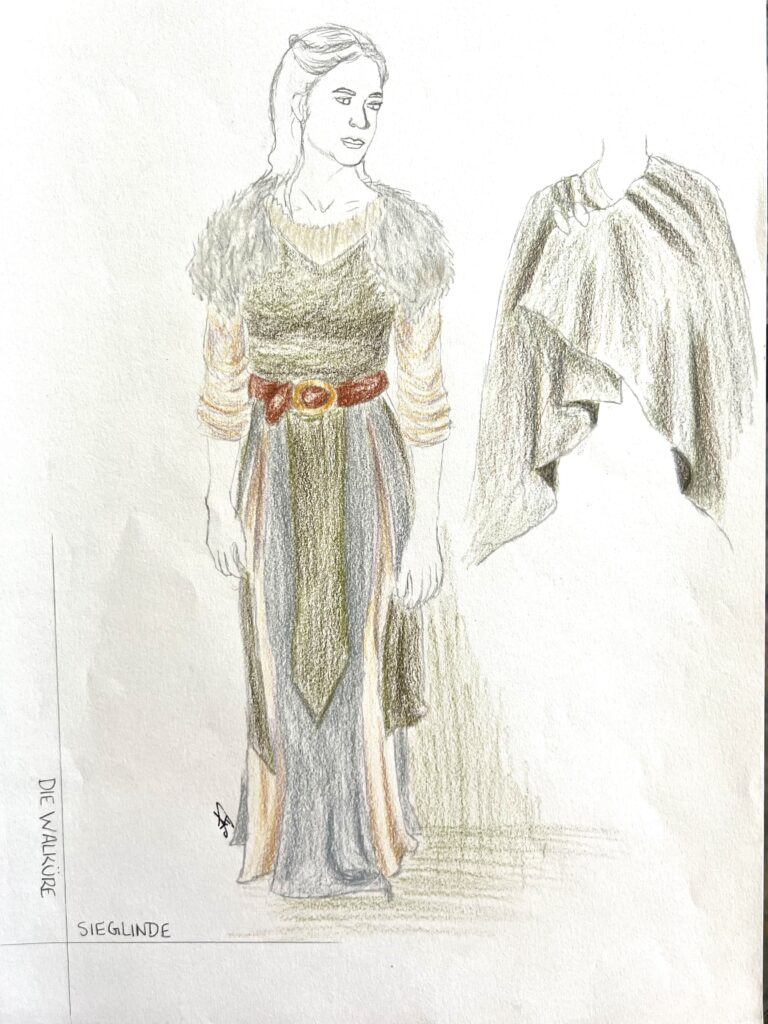
Some of the costume renderings by Azucena Dominguez
Our Brünhilde, Alexandra Loutsion, is one of the finest dramatic sopranos working today. You are likely to see her sing the role at major opera houses around the world in the coming years. Our Wotan, Wayne Tigges, a singing actor with a powerful voice who has sung most of the dramatic bass-baritone repertoire, is singing his first Wotan. Our Siegmund Robert Stahley’s voice and amiable stage presence reminded me of Gösta Winbergh when he first sang for me in 2020.
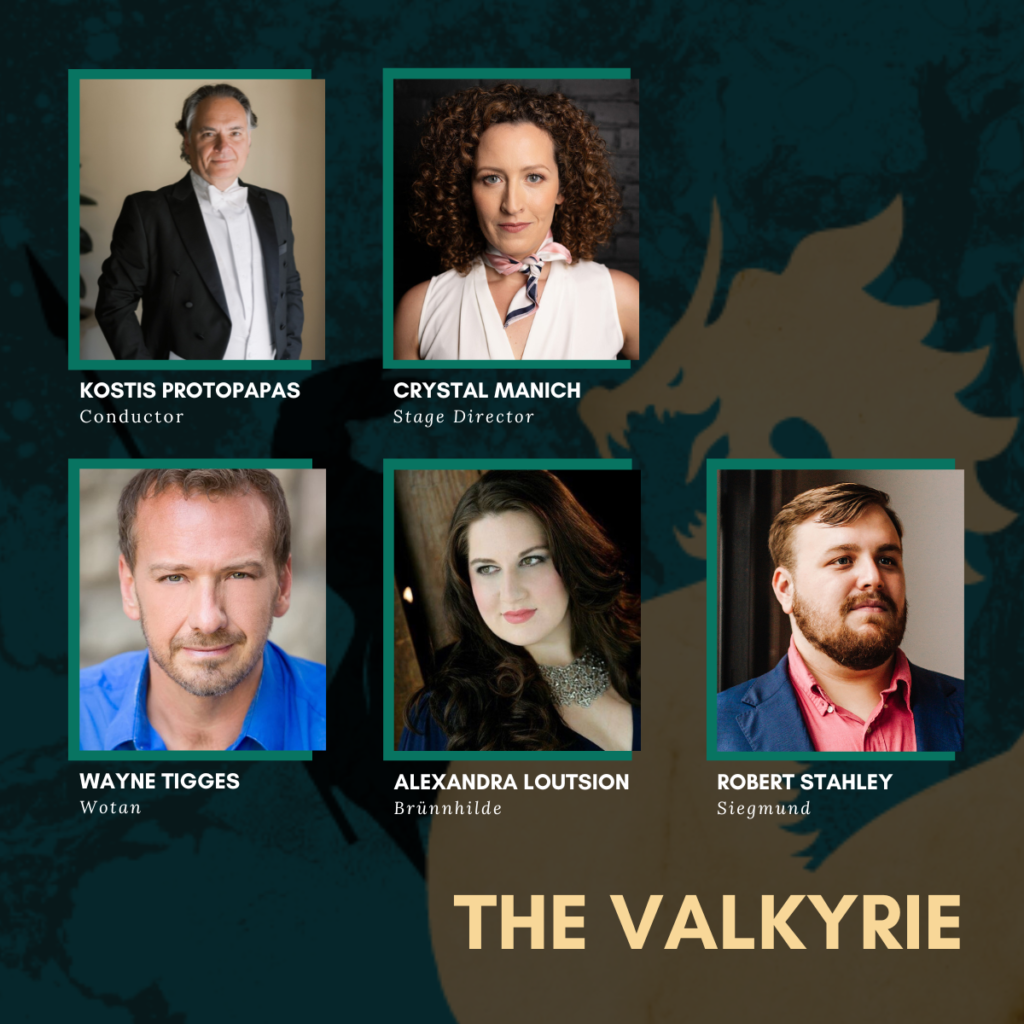
If you don’t like Wagner:
If you don’t like Wagner because his operas seem longer than necessary, then this reduction is an opportunity to give his music a second chance. Otherwise, it’s perfectly fine to sit this one out. See you next season!
If you are an opera lover, but Wagner makes you nervous:
Until recently, I was one of you. For me, any show over three hours is too long. I also can’t stand what sometimes passes as “Wagnerian” singing, where beauty of tone is sacrificed for the sake of audibility in enormous theaters over gargantuan orchestras.
My mind started to change after attending some magnificently sung and played performances of Parsifal, Tristan, and Lohengrin. Although each of those operas lasts about five hours, at those performances the time flew by thanks to the gorgeous music and great singing.
Our production of The Valkyrie is created specifically with the Wagner-shy in mind. It’s abridged to a very reasonable two hours and a half including intermission. Plot-wise, The Valkyrie is perhaps Wagner’s most straightforward opera, and includes some of his most beautiful melodies. Our cast is made up of young singing actors with gorgeous voices, who can create relatable, heartbreaking characters. As a conductor, I take my duty to balance the voices with the orchestra very seriously, and I can promise you that our performance will be in turn both powerful and intimate, as the story requires.
Ours will be a very audience-friendly Valkyrie, and I think you’ll love it.
If you know nothing about Wagner or never been to an opera:
The Valkyrie is an epic fantasy based on Norse mythology. There is love, drama, humor, and all the ingredients of great music theater, in addition of course to a great score. There will be Game of Thrones-like costumes, cool LED lights, and a twenty-piece on-stage orchestra, so there will be plenty of action to watch. The show is two and a half hours long, including one intermission. The singing will be in German, but there will be an English translation projected above the stage. The “Kill the Wabbit” song is in this show, but there won’t be horned helmets. Overall, a great show. Bring a date or a friend, grab a cocktail from the bar (yes, you can bring them into the theater), and enjoy. No homework necessary.
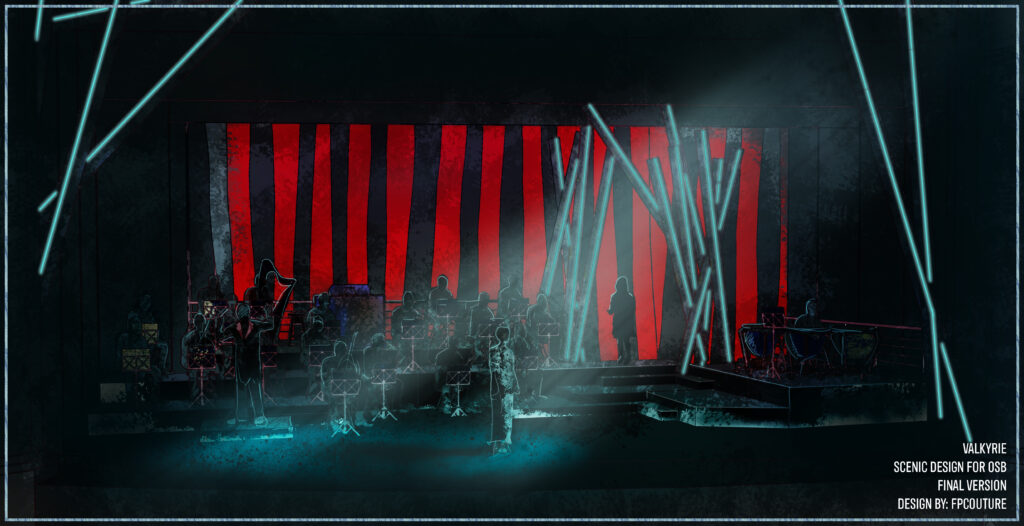
If you have any other questions, please don’t hesitate to write to me at [email protected]. If you are interested in learning more about Wagner, please join us for a panel discussion with two of Santa Barbara’s greatest Wagner enthusiasts and OSB Board members: Simon Williams and Bob Weinman. Saturday, April 15, at 2:30pm. SB Museum of Art Auditorium.
One last thing, while I have your attention: if you value our work, the best way to support us (and all arts organizations) is to buy tickets and attend our shows. Experiencing great art is worth rearranging one’s schedule and paying the price of a ticket, and live theater is better than any stream.
If you can’t make the show, please consider a tax deductible donation, to make sure we’re still here when you decide to attend. Ticket revenue only covers a third or less of production costs. Besides, the videos, interviews, photos, and other content you receive in your inbox from us each week takes time, talent, and treasure to create.
See you at the opera!
Kostis



